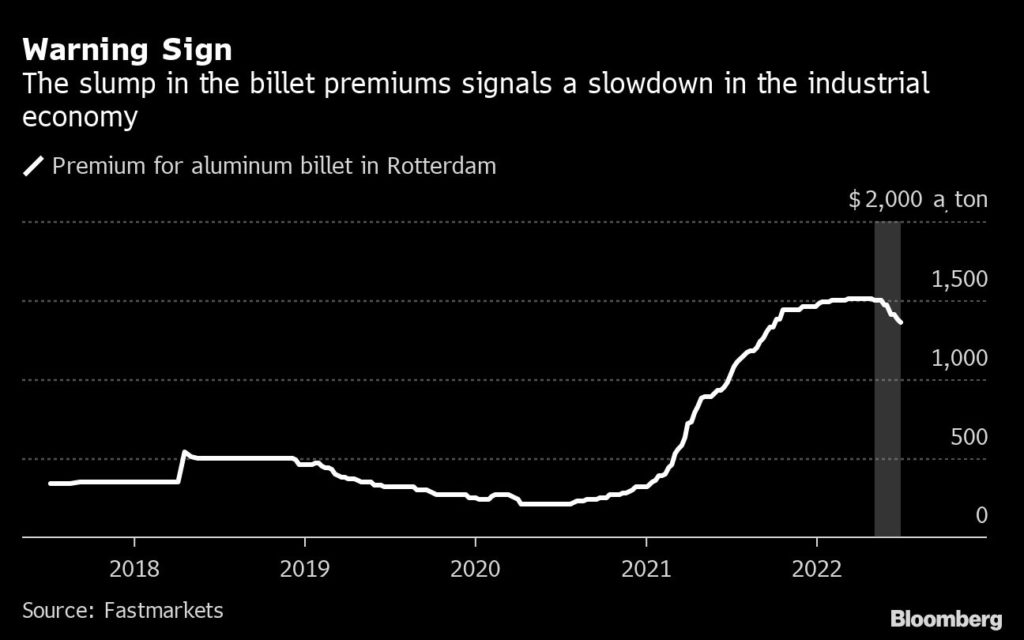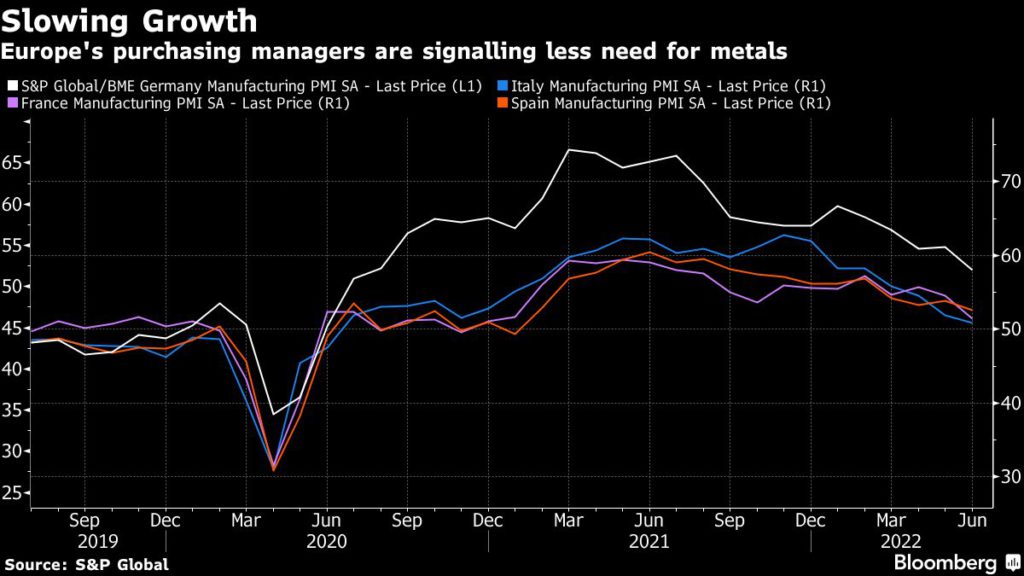White-hot metal market cools in warning for global economy
A white-hot corner of the aluminum market that for months defied a broader slide in metal prices is finally slumping, flashing a warning that major industrial economies are stumbling toward a recession.
While commodity-grade aluminum ingots have been tumbling since March on the London Metal Exchange, until recently the premiums paid for specialized products like billets remained sky-high. Now those premiums for aluminum billets — a cornerstone industrial product used to make extruded parts in buildings, cars and machinery — are slumping from record highs in Europe.
That’s one of the first signs that investor fears about a broad-based industrial slowdown are starting to line up with conditions on the ground in physical metal markets. It’s a sharp turnaround for the billets market, which became a microcosm for Europe’s pandemic supply chain travails.
“We’re seeing a slowdown in our order intake in the construction sector, and those customers are typically the fastest to react,” said Rob Van Gils, chief executive officer of Hammerer Aluminum Industries, which uses billets to make specialized extruded products. “Other areas like autos and electronics are still healthy, but it’s certainly not as hot as it was last year.”

Premiums for billets, which aren’t traded on exchanges, hit record highs in March as soaring energy prices knocked smelters offline and prohibitively expensive container freight obstructed imports. With demand booming and the risk of further disruptions looming large, industrial buyers rushed to build inventories, adding to the unprecedented tightness in the region.
That stockpiling helped inflate premiums and exchange prices for commodities all over Europe as buyers shifted from just-in-time supply chain management to building up reserves in case of sudden shortages. Now, the logistics snarl-ups are starting to ease and consumers are sitting on considerable inventories.
“One of the reasons billet premiums went so high, apart from there being good demand, was logistics,” says Massimo Grifone, a commercial director at Genoa-based trader and distributor Cauvin Metals Srl, part of 132 year-old Italian commodities group Vittorio Cauvin SpA.
“There are not big inquiries currently because everyone has already bought; now you have billets on the ground and the majority of buyers have stocks more or less up to September,” Grifone said.

The steepness of the slowdown in demand remains the big unknown. Concerns over the recessionary impact of high energy prices and even potential power shortages are making European metal consumers wary of buying stock.
Hammerer’s Van Gils is still betting that demand for aluminum will grow marginally overall next year, as rising usage in lightweight vehicles and solar panels offsets a contraction in the construction sector. But that forecast would go out the window if the worst fears over Europe’s energy crisis come to pass, he said.
“I don’t think anybody can say for sure that that’s how events will play out, but there’s a reasonable worry that they could,” said Duncan Hobbs, head of research at London metal traders Concord Resources Ltd. “As a result people, don’t want to be holding substantial inventories.”
(By Archie Hunter and Mark Burton)
{{ commodity.name }}
{{ post.title }}
{{ post.date }}




Comments
Hamed kermanioun
the long term, both Coumans and Deberdt say deep-sea mining companies are failing to properly consider a rising movement to recycle batteries.